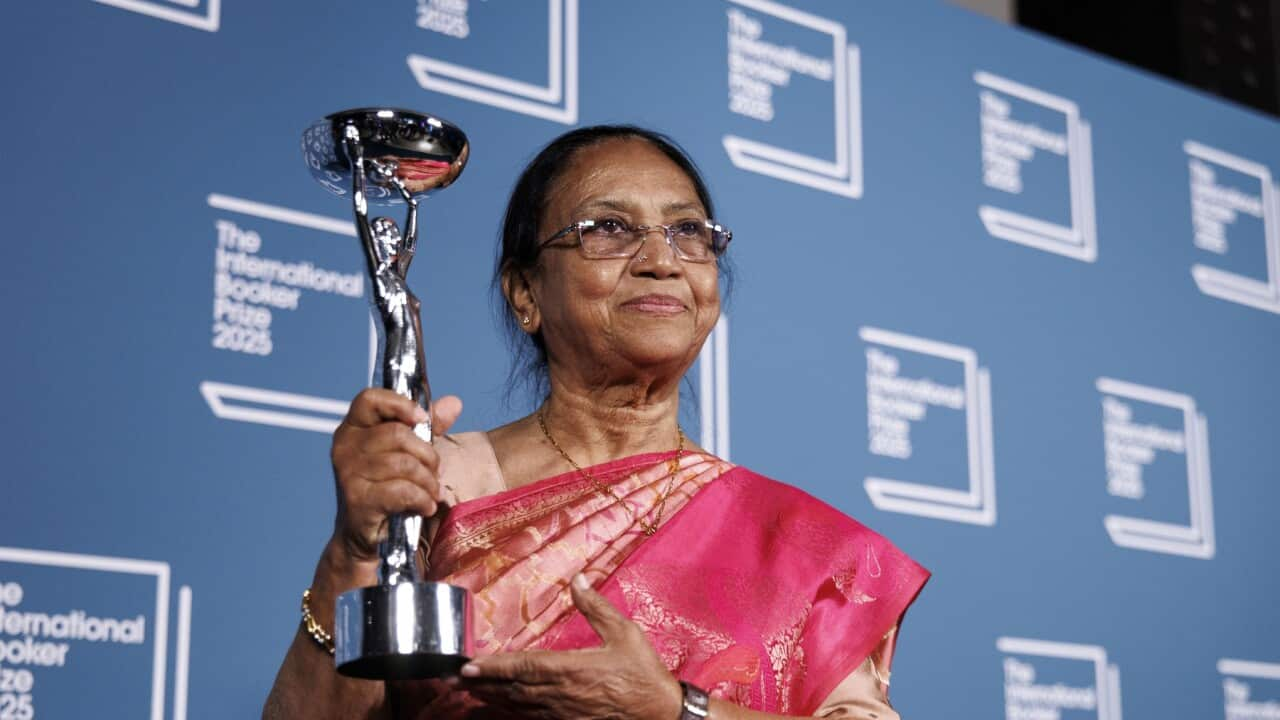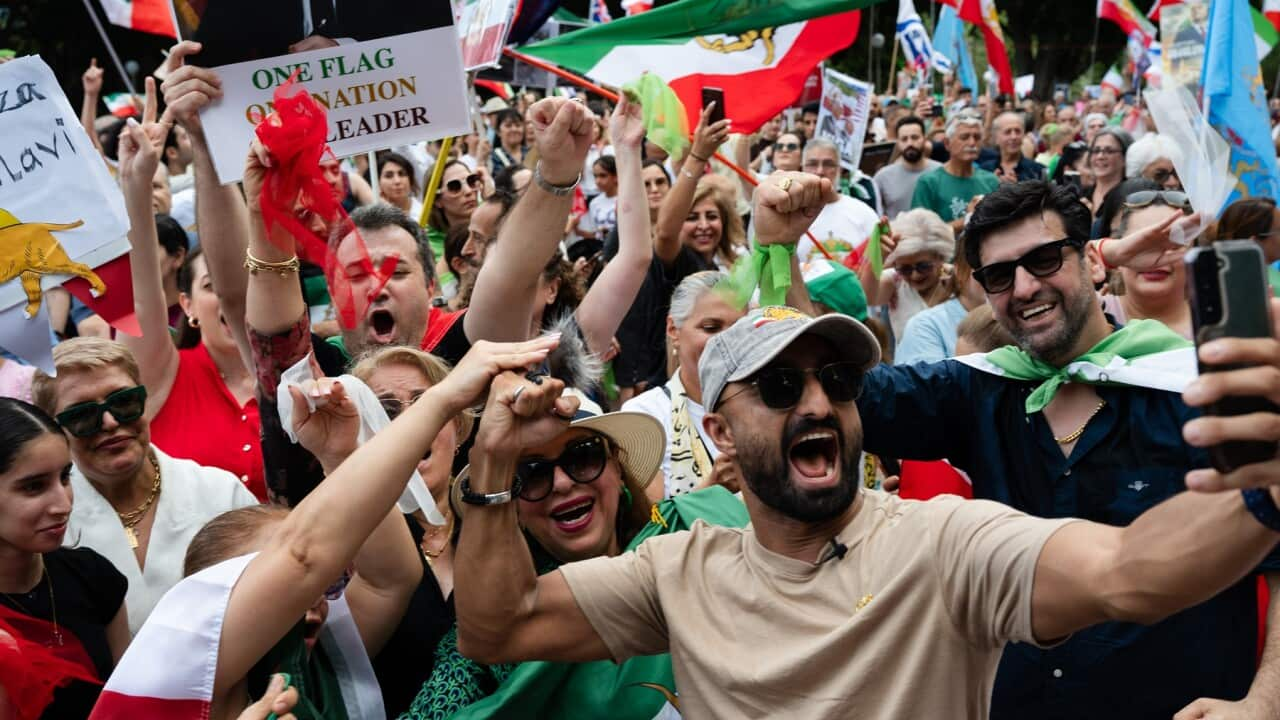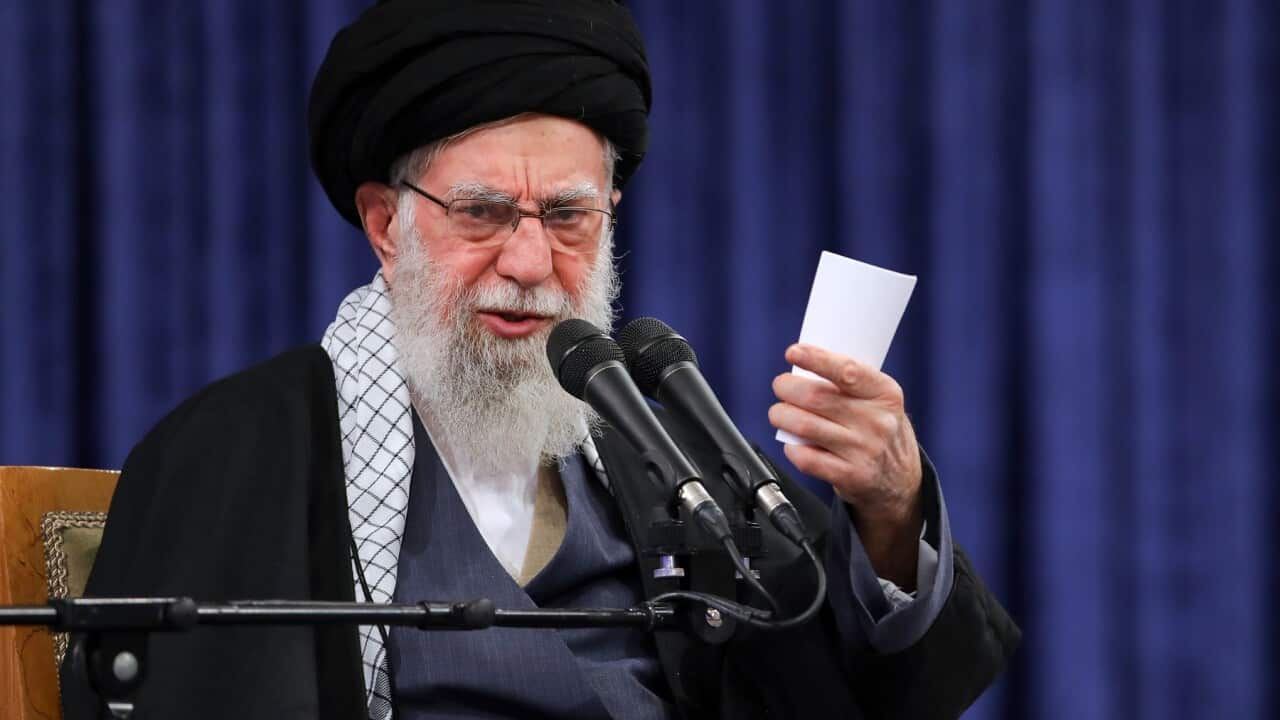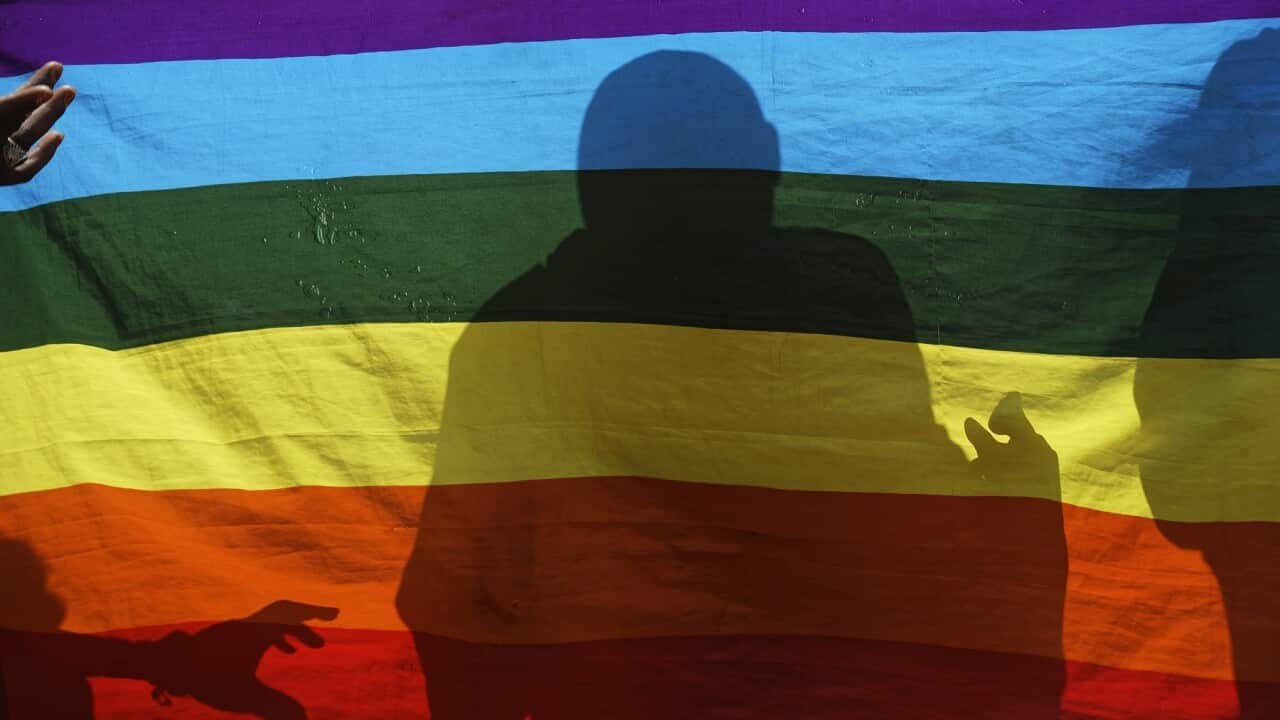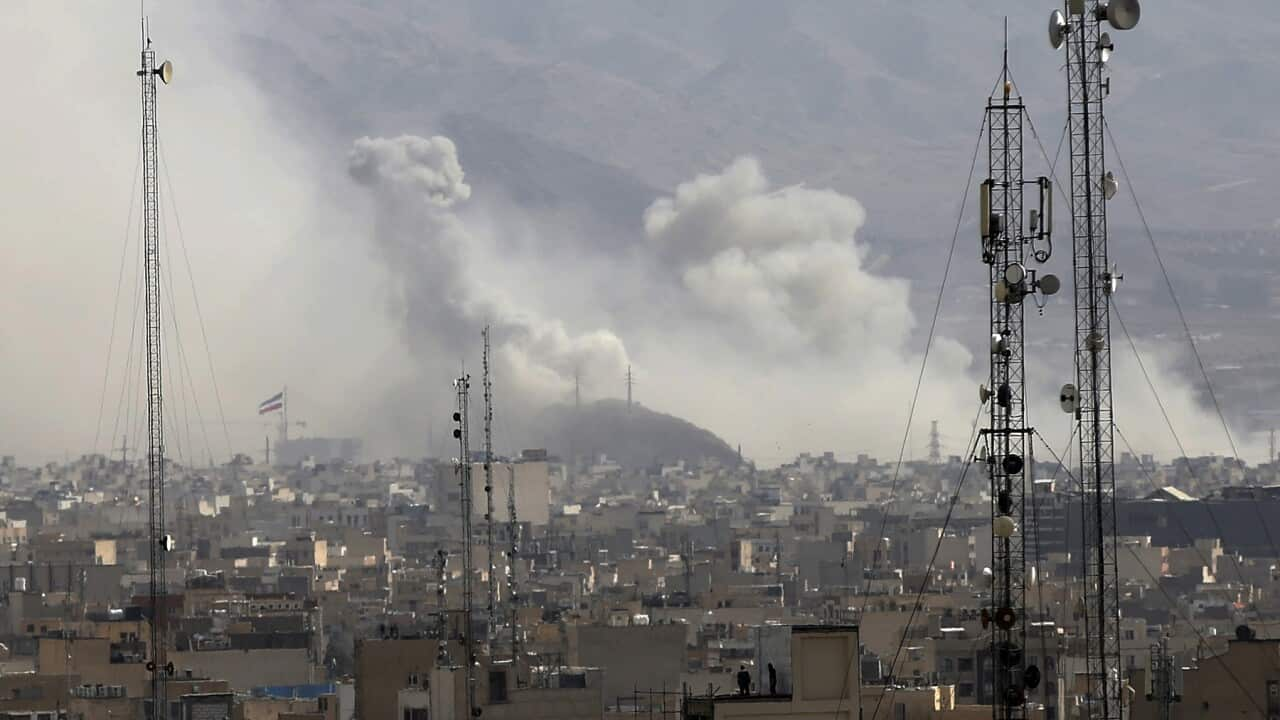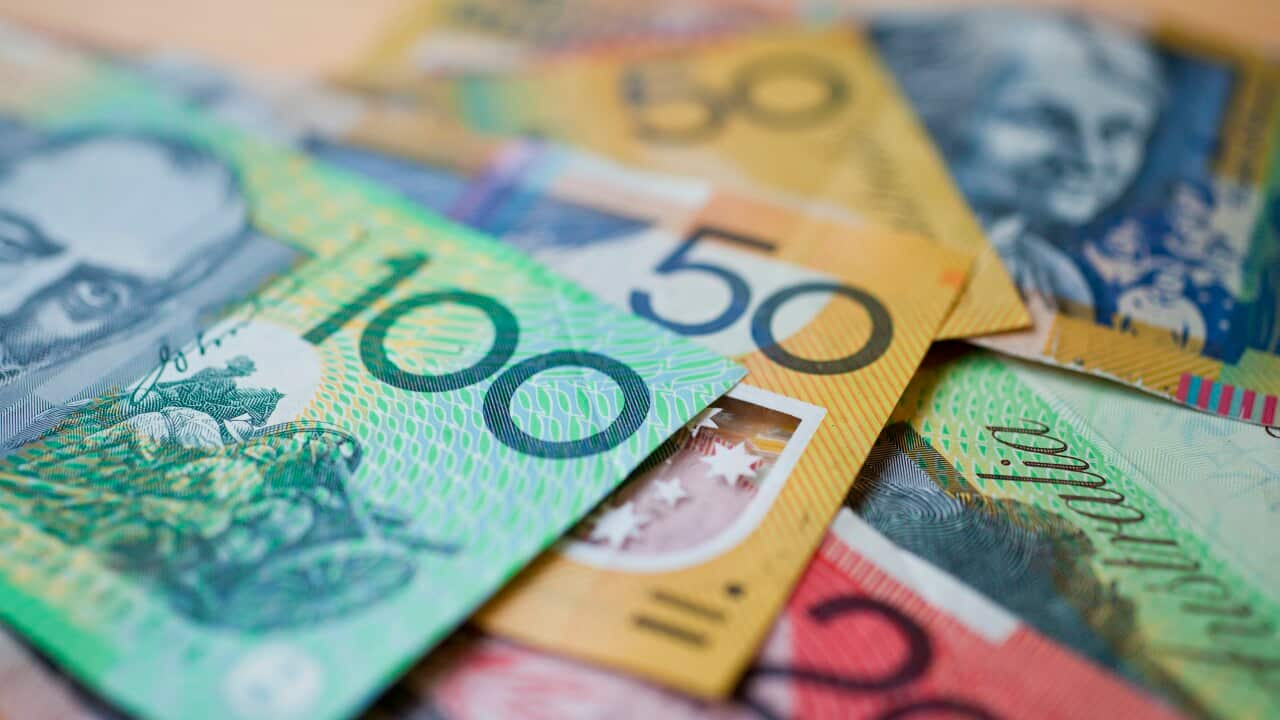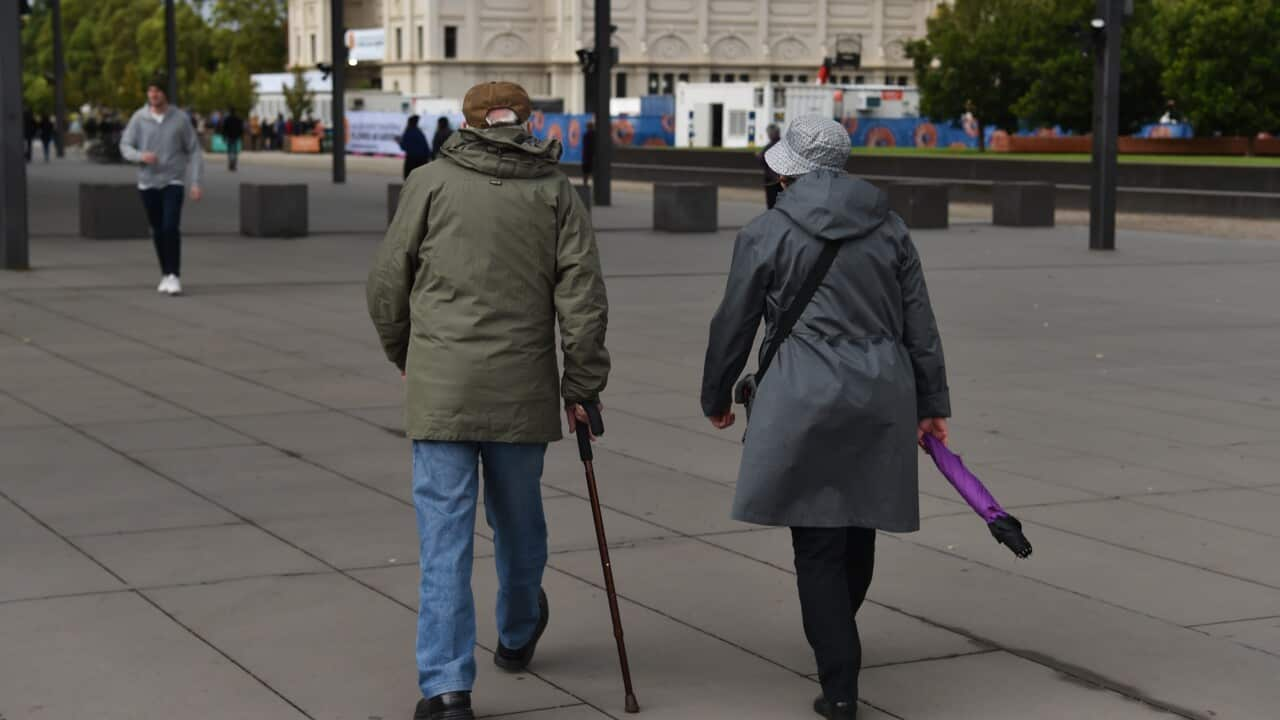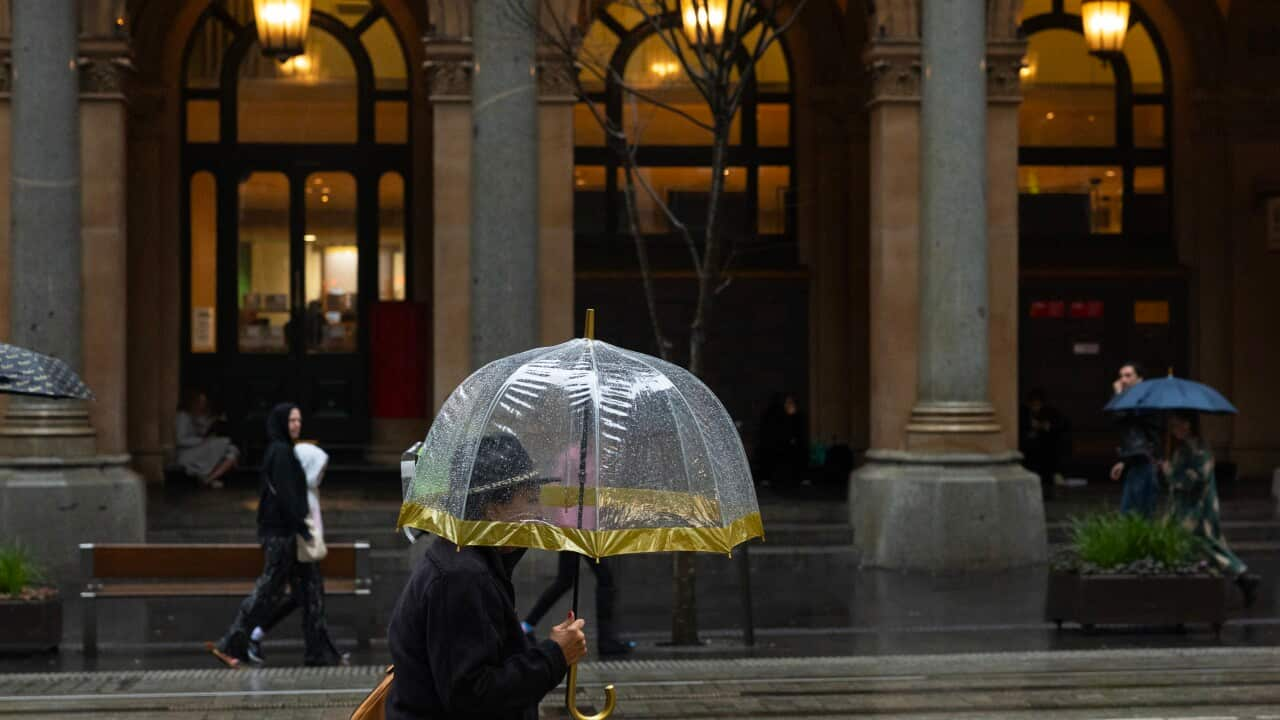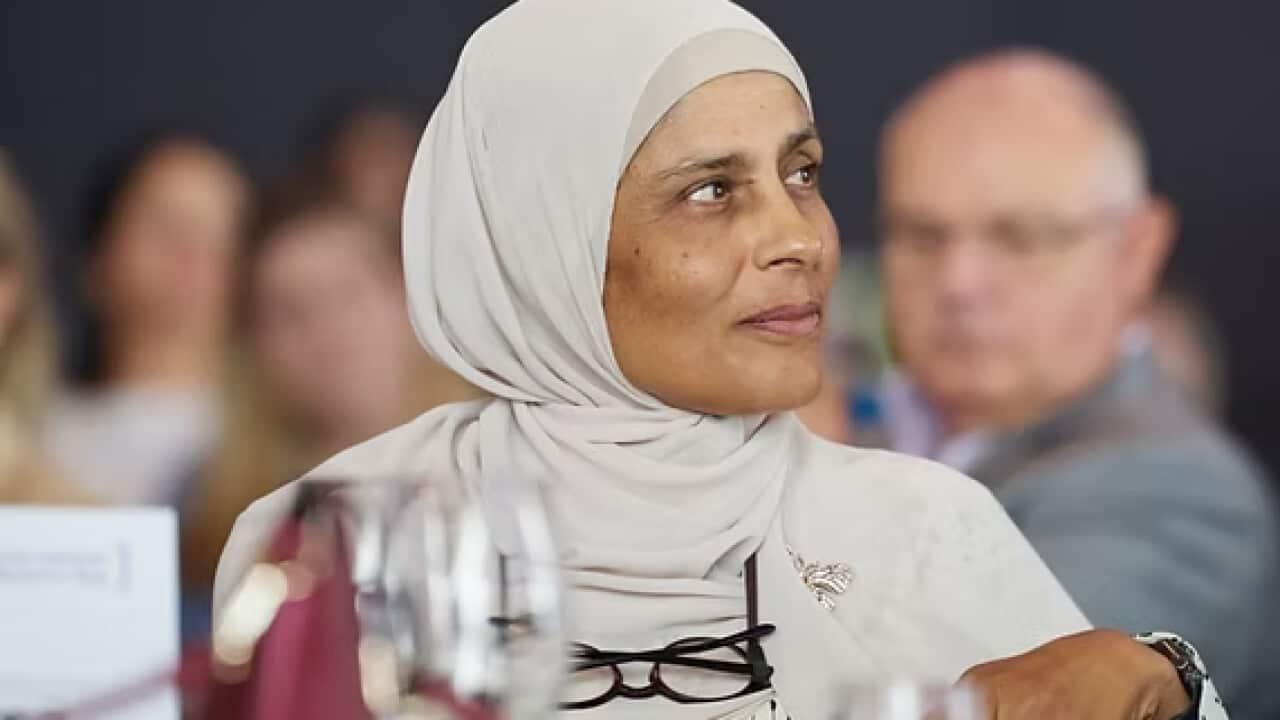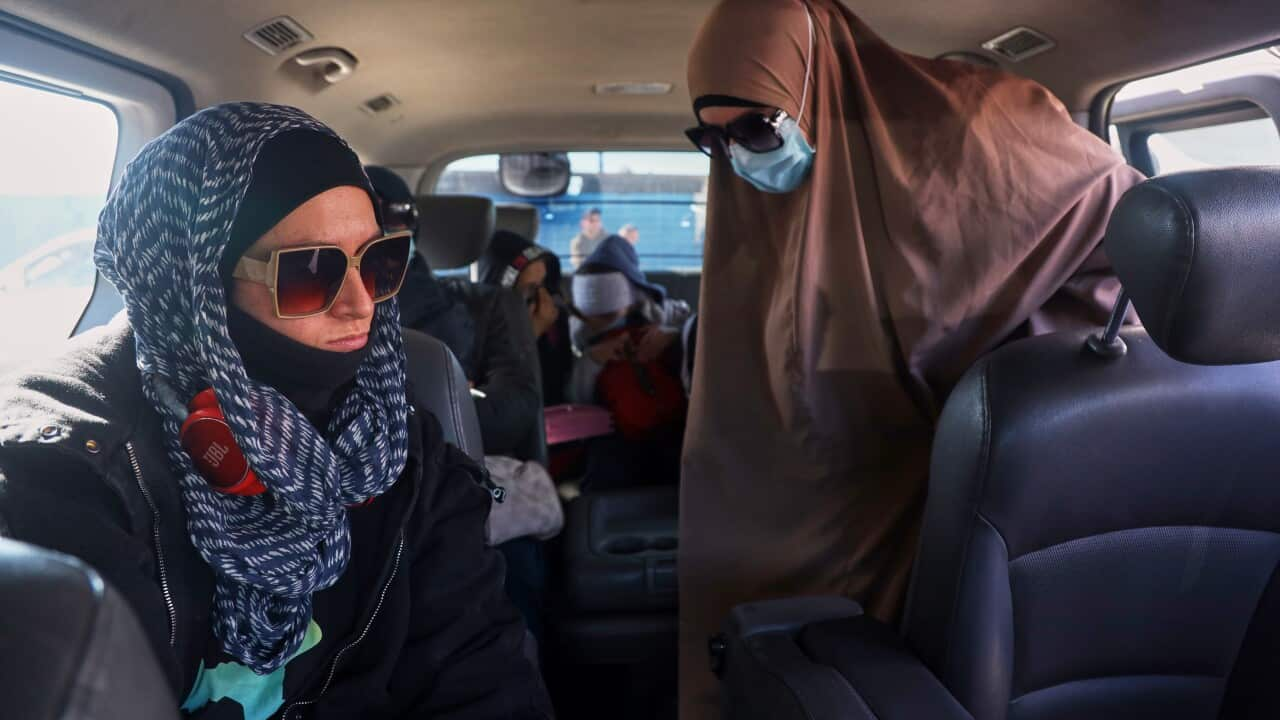Listen to Australian and world news, and follow trending topics with SBS News Podcasts.
"Heart Lamp", a collection of 12 short stories by Indian writer Banu Mushtaq that capture the daily lives of females living in Muslim communities in southern India, has won this year's Booker Prize.
Translated by Deepa Bhasthi from the Kannada language of the region, it portrays moments of family life and community tensions within these communities.
The annual literary Booker Prize award goes to a living author from anywhere in the world for work available in English and published in the UK or Ireland.
Mushtaq said she felt honoured, and that winning the award was more than a personal achievement.
"This book was born from the belief that no story is ever (too) small, that in the tapestry of human experience every thread holds the weight of the whole in a world that often tries to divide us, literature remains one of the last sacred spaces where we can view inside each other's minds, if only for a few pages."
Mushtaq says she used her experiences as an activist, journalist and lawyer who champions women’s rights and protests against caste and religious oppression to inform her stories.
She splits the AU 104,000 prize with her translator Deepa Bhasthi and says she's proud that the book highlights the Kannada language, one of India's many languages.
"Kannada is one of the oldest languages on Earth, and I'm ecstatic that this will hopefully lead to a greater interest in reading and writing and translating more and from into the, from the language, and by extension, from and into the magical languages we have in South Asia."
Deepa Bhasthi says bringing the stories of females living in Muslim communities in southern India to a broad audience, is also about shining a light on the lives of people often forgotten by the world.
"The story of the world, if you really think about it, is a history of erasures. It is characterised by the effacement of women's triumphs and the furtive rubbing away of collective memory of how women and those on the many margins of this world live and love. This prize is a small win in a long ongoing battle against such violences."
This year the judges, read 154 books in six months - the highest number of books recorded since the prize was launched in its current format in 2016.
Six authors were shortlisted for the first time, including four female and two male authors.
The shortlist of six books included "Heart Lamp", in Kannada, and five novels originally in Danish, French, Japanese and Italian, including three with debut English-language publications.
